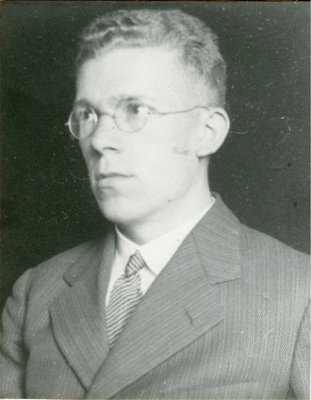Hans Asperger

Hans Asperger
Quick Facts
Biography
Hans Asperger was an Austrian pediatrician and medical professor best known for his pioneering work on autism spectrum disorders. His research, particularly the identification of what would later be called Asperger syndrome, has had a profound impact on psychology and psychiatry worldwide.
Early Life
Hans Asperger was born in Vienna, Austria, and grew up in a time of significant political and scientific change in Europe. He displayed an early interest in languages and the sciences, which eventually led him to study medicine at the University of Vienna.
Career and Contributions
Hans Asperger began his medical career at the University Pediatric Clinic in Vienna. In the 1940s, he published a seminal paper describing a group of children with distinct social and communication differences, as well as unique interests and talents. Asperger referred to these children as exhibiting “autistic psychopathy.” His descriptions laid the groundwork for what would later be termed Asperger syndrome by British psychiatrist Lorna Wing in the 1980s.
Asperger’s work emphasized not only the challenges faced by individuals on the autism spectrum but also their strengths, such as remarkable focus and original thinking. His compassionate approach to understanding neurodiversity was ahead of its time. Today, his name remains closely associated with autism research and advocacy, and his legacy is reflected in ongoing conversations about neurodevelopmental differences.
Achievements and Influence
Hans Asperger’s research has influenced generations of clinicians, psychologists, and educators. The identification of Asperger syndrome enabled more nuanced support and educational strategies for autistic individuals. His contributions are regularly cited in academic literature and have been foundational in the development of modern autism diagnosis and intervention.
Personal Life
Throughout his life, Hans Asperger remained dedicated to his medical and academic pursuits. He served as a professor in Vienna and continued his research and teaching until his death. While much of his personal life remains less documented, his professional legacy is substantial.
Legacy and Controversy
In recent years, Hans Asperger’s legacy has been subject to reevaluation. Some historians have explored his actions during the Nazi era, leading to complex discussions about his role and ethical choices. Despite this, his work continues to shape the understanding of autism spectrum disorders, and discussions about his legacy reflect the importance of considering both scientific and historical contexts.
Conclusion
Hans Asperger’s impact on the field of developmental psychology is enduring. His observations and compassionate approach to children with autism spectrum disorders have had lasting effects on diagnosis and public awareness. For those interested in the history of psychology, neurodiversity, and autism advocacy, Hans Asperger remains a key figure whose work continues to inspire debate, learning, and progress.
For more information about the history of autism research, explore related figures such as Leo Kanner and the evolution of autism spectrum disorder classification. You can also find resources about neurodiversity and support initiatives in the field of developmental psychology.
Detailed Information
| Full Name | Johann Friedrich Karl Asperger |
| Gender | Male |
| Education | University of Vienna |
| Years Active | 1930–1980 |
| Known For | Pioneering work in autism research, Asperger syndrome |
| Major Achievements | First description of Asperger syndrome, influential autism research |